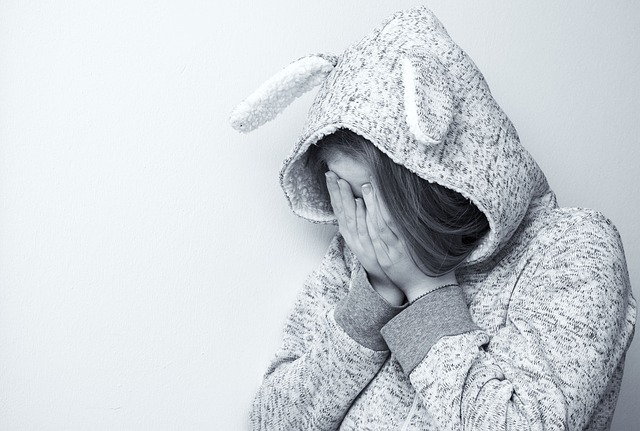The pace of change in the fast-changing world we are living in is accelerating. Thanks to rapid technological innovation, cross-fertilization of ideas and a faster pace of life, the world is becoming increasingly hyper-connected and more devices are connected to the web.
This also means a slew of legal issues for companies and individuals, including copyright, fake news and data inaccuracy. And this rapid change triggers our collective fear of the unknown. We are all under immense pressure today, to compete to get the highest possible result. And this can leads to normalizing cheating or feeling depressed.
If you have a strong voice online or you are someone trying to make a change in the world, it seems like people try to knock you down. Or maybe you don’t post the truth about your life because you’re afraid to be judged. So you fake everything online. Too many people have this experience when being online. So we have to fight external pressure and protect our mental health.

Contents
What is mental health?
The term mental well-being’ refers to a person’s level of happiness, which is defined by their sense of well-being. It can be difficult to determine the exact definition of this term but many factors are important in maintaining a sense of well-being. Having positive psychological resilience is very important for a person’s overall health. It is not only important for individuals but communities as well.
People who suffer from mental illness can face a variety of challenges in their daily lives, including job loss, illness, depression and a deteriorating relationship with family and friends. In this increasingly digitally connected world, it’s more important than ever to protect your psychological well-being, especially for youngsters and children.
Importance of protecting mental health online
The importance of mental well-being cannot be stressed enough. Our daily routines keep us running at a panic-stricken pace. As a result, our psychological health suffers. This can result in reduced productivity, increased risk of social unrest, and even higher rates of unemployment.
People with high mental well-being are more resilient when faced with a variety of stressful events and uncertainties. They’re more likely to deal with challenging life events, develop greater self-esteem, and experience less anxiety. Mental well-being is different for every person and the definition changes over time.

If you’re interested in improving your mental health and happiness, starting with a positive foundation is the best place to start. A good balance of physical and cognitive well-being is important. A healthy mental state must not be ignored. Instead, it must be nurtured along with academic excellence.
The importance of mental well-being cannot be overemphasized. While success in life is important, it is equally important to take time for yourself every day to cool off your negative energy and recharge your batteries. Increasing brain well-being can benefit society at large.
In addition to promoting positive self-esteem, it will improve engagement and achievement and ultimately lead to better job prospects and more positive life choices. However, as technology keeps evolving rapidly, concerns keep arising over the impact the internet can have on children and adults.
Children use the internet for different reasons, depending on their age and development. So they have to learn how to cope with the constant bombardment of online distractions. A high level of social media use can lead to feelings of loneliness and isolation. Reducing social media usage can lead to higher well-being because human beings need to interact face-to-face with other people.
Face-to-face contact reduces stress and boosts mood. People who prioritize social media over face-to-face contact are more likely to suffer from depression, anxiety and other mental health conditions.
It is important to make an effort to interact with people with a simple smile or hello. This can go a long way, it can help reduce feelings of resentment and discontent that arise from social media use. Social media also contributes to anxiety, depression and physical ailments. Thus, it is vital to take care of your psychological health if you want to enjoy life.
Mental wellness is correlated to personal feelings and therefore, it has a strong relationship with self-esteem. If a person has high self-esteem, they can express it through increased affection and support. Likewise, if a person has low self-esteem, they are more likely to have poor relationships. However, good mental health is essential to success in anything, not just online.
How to protect your mental health online
The Internet is beneficial but it is also a time-consuming activity that can lead to a poor mental state. To protect your mental well-being in this online world requires that you be mindful of the content you are exposed to. The content you see online is a filtered version of reality, carefully chosen by the user. You should also limit the time you spend on certain sites.
In our ever-connected world, it’s important to safeguard your psychological health and there are many ways to do this. Keeping up with news and social media is good but avoiding consuming unhealthy media is important. Getting regular exercise is also a way to improve your overall health.
If you feel isolated or depressed, seek help from a professional. If you feel too overwhelmed to find resources and support, consider following positive people on social media. You can look for positive content by following positive people online. For example, you could follow singers, authors or self-made entrepreneurs to find more tips on how to become resilient and protect yourself.
A study by the University of Pennsylvania shows that high social media usage is associated with feelings of loneliness and reducing your social media usage can be beneficial for your well-being. It’s important to meet in person for social interaction, as humans need face-to-face contact to boost their mood and reduce stress.

Those who prioritize social media over face-to-face interactions are at a greater risk for depression and other mood disorders. However, if you don’t feel comfortable disconnecting from your smartphone, you can always go out to find ways to protect your psychological well-being. Educators have also their part to play.
Educators should make mental-health policies and programs accessible to parents so that they can provide support to their children and keep them safe. By educating students early on, educators can help them identify mental-health issues before they get out of hand. In addition, sharing mental health policies and programs with parents will help them recognize signs of psychological issues before they become serious.
This can help spot signs of distress and help children get the support they need to protect themselves from cyberbullying. The Internet offers a multitude of online resources for people to use. From online community forums to blogs, you can find advice and support about a variety of emotional health issues.
By using the Internet to search for information about mental health medication, you can also research its benefits and side effects. This way, you can make an informed decision about which medication is best for you. Also, you can easily access online support, which is especially useful if you’re not able to seek professional help.
Talking to a trusted person can also make all the difference in the world. For example, a person suffering from depression or anxiety may need to get professional help. Mental health is also important for families, schools and workplaces. Another thing we need to work on is inside ourselves.
Self-acceptance is an important thing, which means embracing our flaws and failures as these are important parts of us that make us human. You need to be able to accept that you are allowed to make mistakes. Because the only people who don’t fail are the people who don’t try.
Unfortunately, we can’t address the hardships of social media and cyberbullying. Because worldwide, more than one-third of young people have reported experiencing cyberbullying online. Being bullied online has become the norm and can be humiliating. And this happens to everyone in some way online, not just to people with big followings.
So I think if we want better online spaces, we have to each play a role in creating them by committing to treat each other with kindness and respect. And if you are being harassed or bullied online or offline ask for help and support because individual resilience won’t help you. Being resilient does not mean you have to face things alone.
We could be vulnerable at the same time, reaching out and talking to trusted people like our parents, best friends, teachers or even psychologists.
Technology is our future and we need to make sure that the future is safe and healthy. Young people must become catalysts of change by harnessing the power of the internet while not sacrificing their mental health. Technology is our generation’s and it should help us, not hurt us.

0 Comments